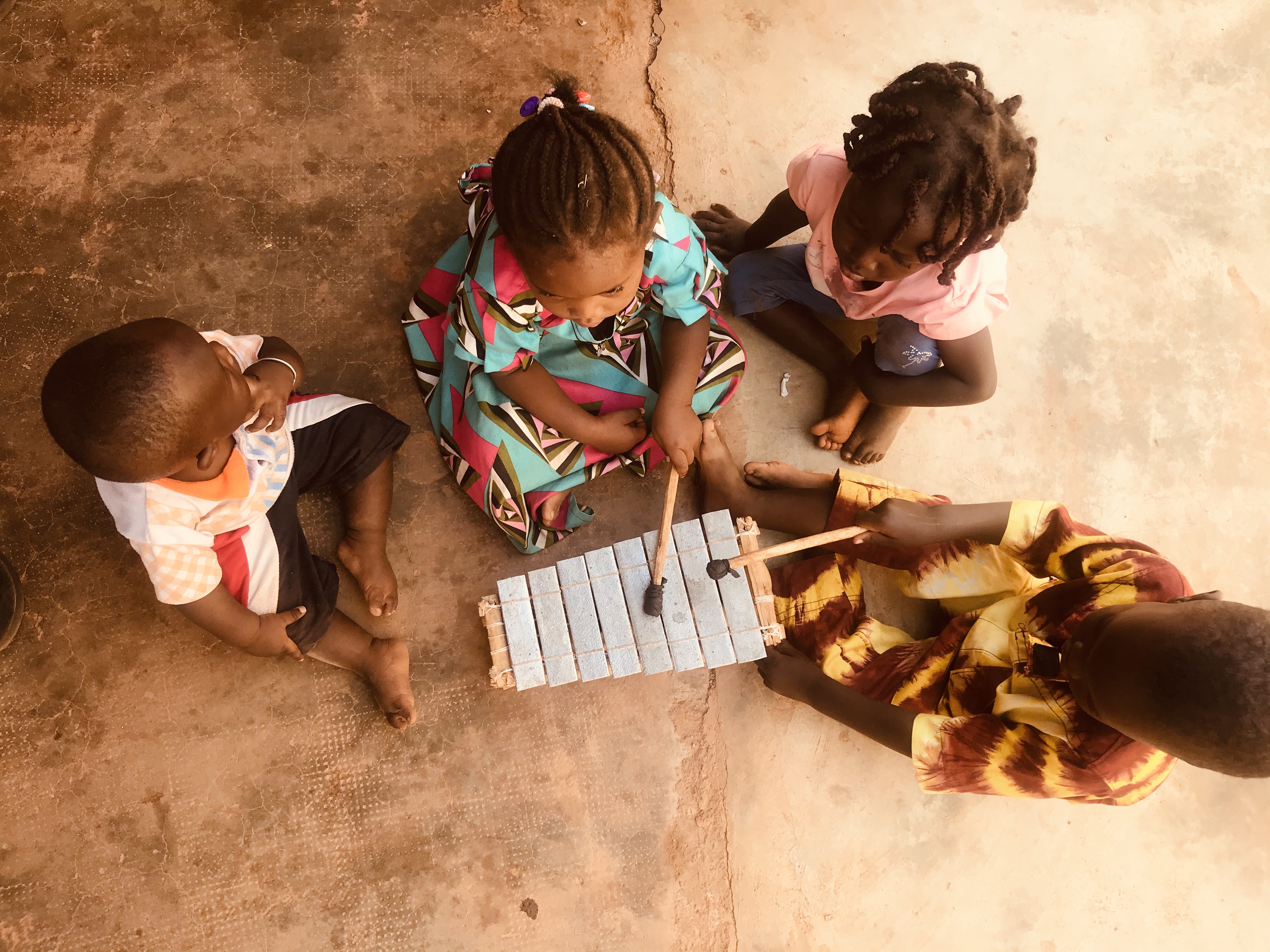Planète Enfants & Développement: a programme for women and children’s fulfilment in Burkina Faso
In Burkina Faso, only 5% of children have access to nursery school, meaning 95% of them only start school at the age of 6. This means that women are very often responsible for looking after them in the first 6 years of their life. This situation is an obstacle to their career plan, their financial independence and both their personal and professional fulfilment.
Because in Burkina Faso, the role of nursery assistant is very under-developed. In cultural terms, it seems obvious that it is the mum’s job to take care of the child at least for the first three years of his or her life. So, there did not used to be any professional training or qualifications for looking after children aged between 0 and 3 years.
To change the situation, in 2018 the French charity Planète Enfants & Développement responded to a call for projects announced by Expertise France (the French public agency for designing and implementing international technical cooperation projects) which encouraged the development of sectors and the creation of new occupations.
A 12-day training course was created by the French-Burkinabé partnership to prepare for the role of nursery assistant – two weeks of training followed by a 3-month professional internship.
From its first class in 2019, the Societe Generale Foundation chose to support the charity in its mission to enable 150 women to access this training, which had the potential to change their lives.
A training course with multiple objectives
“In Burkina Faso, there are lots of NGOs that work on the issues of nutrition and childhood protection but there are very few involved in the development and education of young children”, says Estelle Dahani, project manager at Planète Enfants & Développement. “This is why the charity really focused on early childhood development. There was a gap.”
Through the charity’s action, children enter the education system a lot earlier and therefore have a clear advantage for the success of their future studies.
Even if young Burkinabés are obviously the ultimate beneficiaries of the charity’s action, there are much more immediate beneficiaries with this training programme.
On this course, there is a side that is just as important to us as the technical aspects… enabling these women to gain self-confidence and really take ownership of the nursery assistant training.
Estelle Dahani, Planète Enfants & Développement project manager in Burkina Faso
She reminds us how these women are not used to being recognised or given responsibility. They are often from a vulnerable background where home is not a place where their fulfilment is taken into account.
“Over these 12 days, they also learn to come out of their shells”, confides Estelle. “We free them from their burdens as far as possible so that they can really get involved in this training. So that they can really take advantage of the opportunities on offer to them to find fulfilment.”
These young women are aged between 18 and 35 years, an age at which most of them have two or three children to care for, in particular very little ones.
For their motherhood not to be an obstacle to their career once again, the charity Planète Enfants & Développement very quickly decided to set up a mini-crèche where graduates of the course could look after the children of the women still in training.
The initial results
It is still too soon to measure the impact of this course... but one thing is certain, many women have found work at the end of it. Sometimes even in other fields, but as we have seen, the aim of the training is not only to turn them into nursery assistants but also to give them self-confidence.
“The course has enabled them to become aware that they are able to do something: to create”, concludes Estelle Dahani, smiling.
But there are also women who have got together to rent premises and create crèches at home for the children of working women.
“There are even rural municipalities that have provided premises that the town hall was not using so that the women we have trained can look after children in a secure place”, she is delighted to say.
The many positive impacts of this training will be difficult to measure. There is a distinction to be made between the direct beneficiaries who are the new nursery assistants and the children who will be entrusted to them. Finally, this project will also have an impact on the lives of working women who will be able to gain financial independence by having their child looked after, as well as an impact on the country’s economy, where half the population is able to work.
Copyright : @Planète Enfants & Développement

